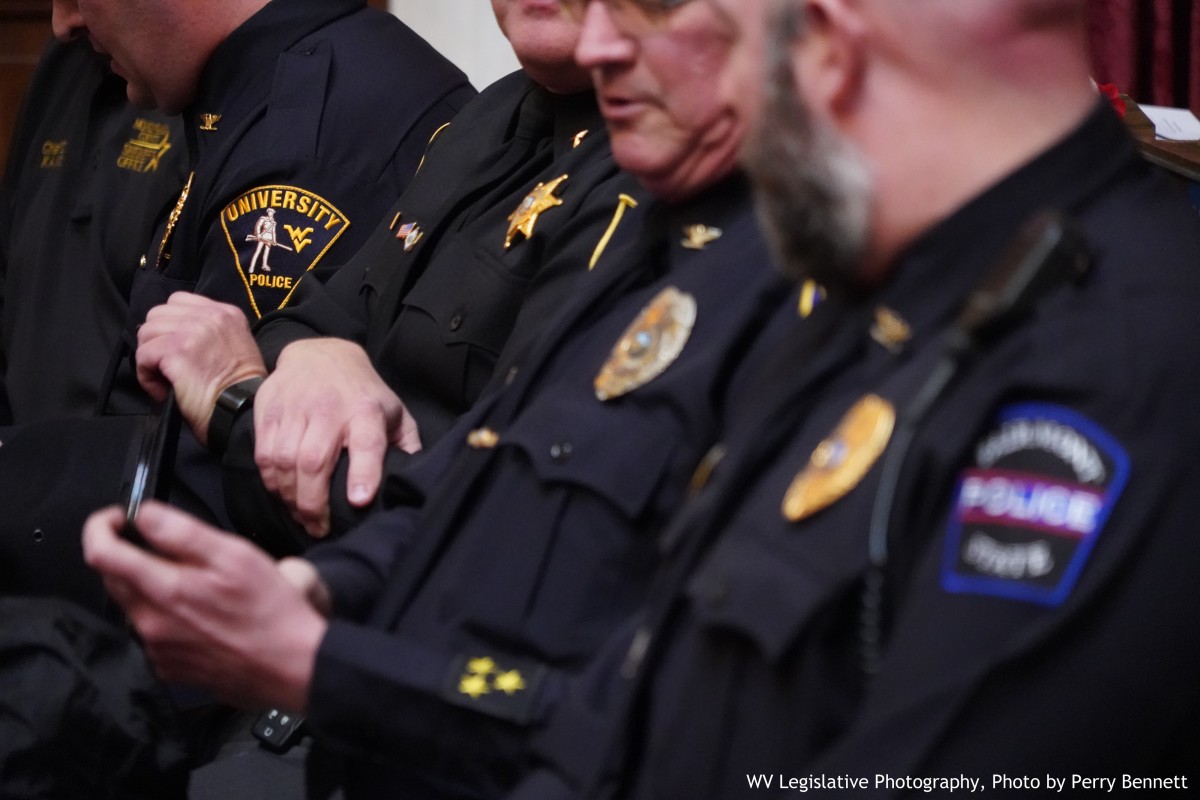CHARLESTON — The Campus Self Defense Act, also nicknamed the Campus Carry Bill, drew 41 speakers to a public hearing Monday afternoon. The opponents outnumbered the supporters almost 3-1, with 30 against and 11 for it.

House Judiciary called the hearing on HB 2519. The bill would allow, with specified exceptions, people with concealed carry permits to carry weapons on college campuses.
Concord University Police Officer David Eldridge said the bill would pose a substantial burden to the university. The first-year cost, including added staff and equipment, would be $726,000. Concord would need to add 13 officers to its current staff of 13 police and two security guards. It would need to add metal detectors to buildings across campus.
Concord’s Dean of Students Sarah Beasley was among those who raised the issue of the emotional vulnerability of college students and issues with suicide attempts. She said a survey showed that 98 percent of Concord students feel safe on campus, and the possibility of their school mates toting guns and accidental shootings makes them feel less safe.
Zach Campbell was one of several members of the Citizens Defense League there to support the bill. He said state law already allows permitted gun carriers to carry on campus and guns are already on campuses. The bill protects students, staff and faculty who could face consequences for exercising their constitutional right.
Amber Perry, a CDL member and a college student, said she should have the right to be able to defend herself on campus. Campus police can’t be everywhere all the time. Another CDL member added that denying women that right makes them more vulnerable to attack.
Several from WVU and Monongalia County drove to Charleston to oppose the bill.
WVU professor Sara Anderson said the policy would inhibit free speech in class. There are often heated discussions; threats of intimidation and fear of getting shot would stifle the free flow of ideas.
WVU Police Chief William Chidester echoed some of Eldridge’s thoughts. Campus carry will require more equipment, more officers on campus, more officers present at events, and a new level of concern when responding to calls: Every call could involve a gun.
WVU Provost Joyce McConnell stated the university’s position, which Rob Alsop, vice president for strategic initiatives, laid out to The Dominion Post before the start of the session: Local control and local authority are essential, and the Board of Governors is best equipped to address campus carry policy.
Mon County Sheriff’s Chief Deputy Al Kisner cited a raft of statisitcs.
From 2001 throug 2016, he said, 437 people shot in 190 incidents on college campuses. Since the Virginia Tech massacre of April 2007, 320 people have been shot and 122 of those died.
In a separate list of 149 shooting incidents, he said, 38 percent were disputes between students; 11 percent targeted students or employees; 5 percent were rampages with mass casualties; 4 percent were student shoo ters denied access to or kicked out of parties.
“I think the numbers stand for themselves,” he said.
Among the exceptions stated in the bill, a college or university could forbid concealed carry at an event taking place in a stadium or arena holding more than 1,500 people and in campus daycare facilities.
It could also forbid possession in an area containing adequate security measures to ensure no weapons enter; with adequate security meaning detection equipment and armed security at the doors.
Students and employees undergoing a disciplinary hearing also would not be permitted to carry during the hearing.
Judiciary chair John Shott, R-Mercer, did not announce when the bill would appear on the agenda.
TWITTER @dbeardtdp Email David Beard at dbeard@dominionpost.com




